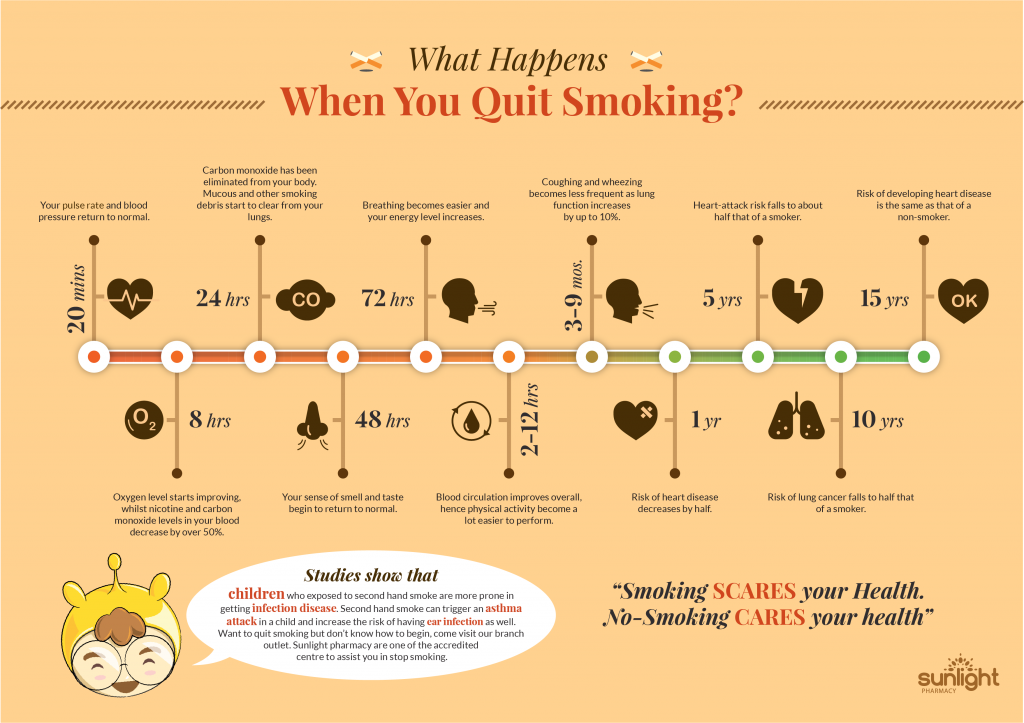
Cutting down to quit - NHS inform - An Overview
Cigarette smoking is a hazardous habit that can cause severe health issues and death. When a person stops smoking cigarettes, the body will begin to naturally heal and gain back the vigor of a non-smoker over time. Some impacts, such as decreased high blood pressure, are seen practically right away. Other results, such as threats of developing lung cancer, cardiovascular disease, and lung disease, take years to drop down to the levels of a non-smoker.

Countless individuals understand from personal experience that smoking is a hard practice to kick. The reason is that nicotine is addictive. Even though nicotine's high isn't as dramatic as drug or heroin's, it's similarly as addicting as those prohibited drugs. And nicotine withdrawal is really real. It's why many cigarette smokers try many times before they finally quit for great.

When you don't have it any longer, you go through withdrawal. smoking benefits 'll physically crave that nicotine hit and become irritable if you can't have it. Nicotine withdrawal usually lasts only a month or two, but you could be combating the mental fight versus cigarettes for a long time. How Nicotine Withdrawal Works, Depending upon how long you have actually smoked and the number of cigarettes you have a day, symptoms of nicotine withdrawal can last anywhere from a number of days to several weeks.
Little Known Facts About Cutting down to quit - NHS inform.

The very first week, particularly days 3 through 5, is constantly the worst. That's when the nicotine has lastly cleaned out of your body and you'll begin getting headaches, cravings, and sleeping disorders. The majority of relapses take place within the first two weeks of quitting. If you can overcome that bulge, the physical symptoms will begin to go away-- however you'll still be dealing with mental and emotional challenges such as anxiety, anxiety, and irritability.
Physical Withdrawal Signs, Everyone is different, and signs of withdrawal depend upon numerous things, like the length of time and the number of packs a day you have actually smoked. But for the most part, you can expect to have these common physical concerns when you quit: Within a day or two of your last cigarette, your appetite w